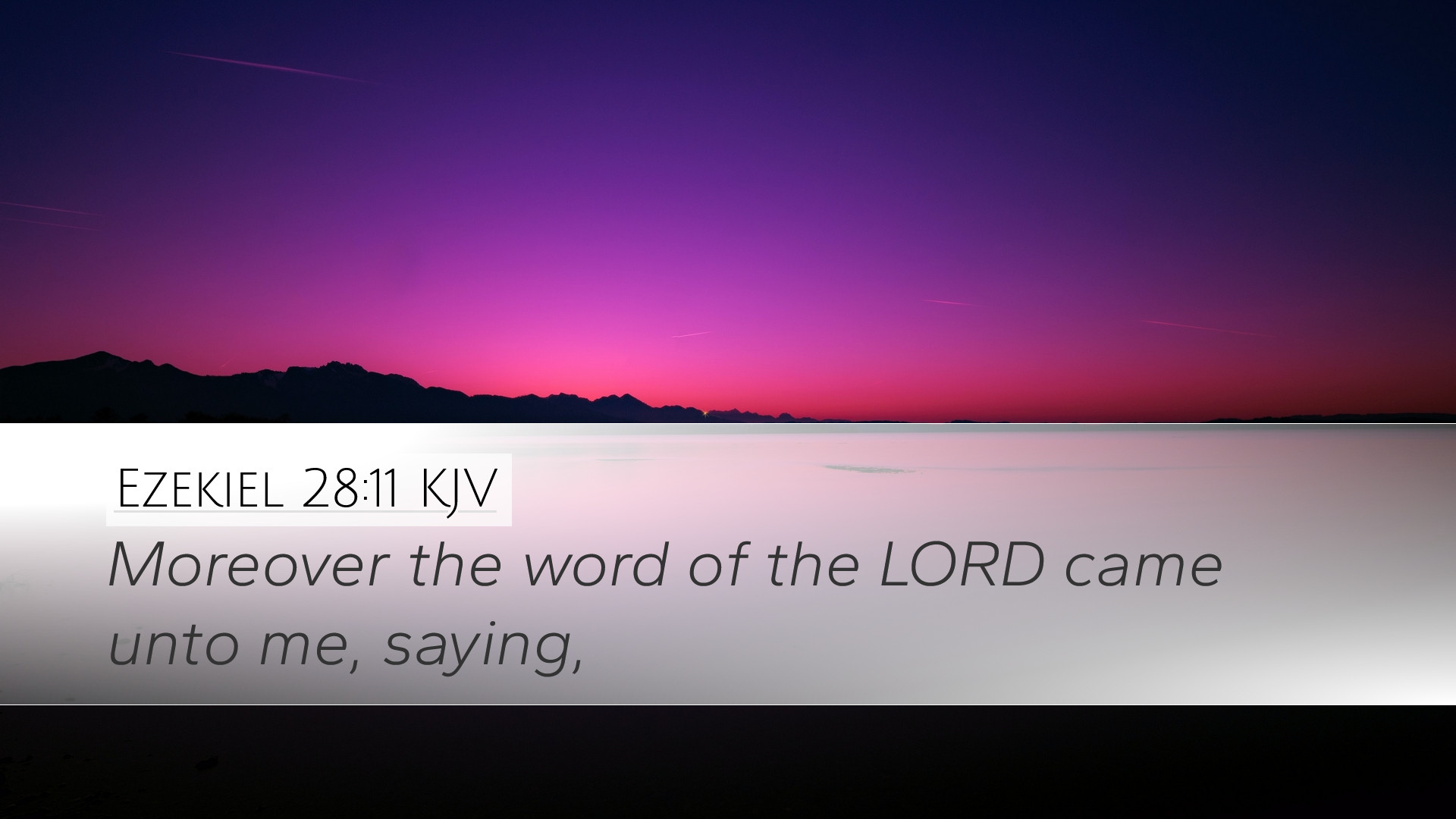Ezekiel 28:11 Commentary
Verse: Ezekiel 28:11 - "Moreover the word of the Lord came unto me, saying," This verse serves as a pivotal entry point into a profound proclamation about the king of Tyre, laden with rich theological implications.
Contextual Background
The passage is directed toward the king of Tyre, a significant city in ancient Phoenicia, renowned for its wealth and trade. Ezekiel utilizes the imagery of a lamentation, which serves both a poetic and prophetic purpose. The text unveils a multifaceted critique of pride, corruption, and the disastrous consequences of turning away from God.
Exegesis of the Verse
The phrase "the word of the Lord" emphasizes the prophetic authority behind the message. Various commentaries highlight that this word comes with divine weight, underscoring the seriousness of the impending judgment against Tyre.
- Matthew Henry: Emphasizes the severity of God’s judgment on the king, denoting that pride leads to destruction.
- Albert Barnes: Suggests that this section reflects the mystical aspects of the text, connecting the king of Tyre to a deeper symbolic representation of Satan.
- Adam Clarke: Provides insights into the socio-political condition of Tyre during Ezekiel's time, indicating how the king's arrogance mirrored a rebellion against divine authority.
Theological Themes
The commentary highlights crucial theological themes present in Ezekiel 28:11, including:
- Divine Sovereignty: The assertion that God is ultimately in control, regardless of human pride or ambition.
- Pride and Fall: The narrative serves as an admonition about pride leading to a fall, a consistent motif throughout Scripture.
- Judgment and Restoration: While judgment is pronounced, the hope of eventual restoration emerges, showcasing God's merciful character amidst His holiness.
Descriptions of the King of Tyre
Ezekiel paints a vivid picture of the king, highlighting his splendor and excellence:
- He was adorned with wisdom and perfect beauty.
- His heart was lifted up because of his beauty, showcasing the dangers of self-deification.
Matthew Henry points out that this personality trait aligns with the characteristics of Satan, who also fell due to pride. The king's self-assessment leads to divine rebuke.
Literary Structure
The literary structure of this passage contributes to its depth. It combines elements of poetry and prophesy, creating a rich tapestry that invites deeper exploration into its meaning.
- Imagery: The imagery evokes a sense of both beauty and horror—reminding readers that material success can lead to spiritual downfall.
- Contrast: There is a stark contrast between the king's current state and the judgment that is prophesied, highlighting the fleeting nature of human glory.
Application for Today
For pastors, students, and theologians, Ezekiel 28:11 stands as a timeless reminder of the eternal truths concerning pride, power, and accountability before God. There are several contemporary applications:
- Humility in Leadership: Leaders in various sectors should heed this warning against boasting and pride.
- Awareness of Spiritual Warfare: Recognizing that pride can be a stronghold for many, leading to spiritual defeat.
- Understanding God’s Justice: A call to understand the seriousness of divine judgment against prideful disregard for God’s commandments.
Conclusion
Ultimately, Ezekiel 28:11 serves as a profound meditation on the nature of human authority, the perils of pride, and the ever-present possibility of divine judgment. It invites a reflective stance on one’s relationship with God and the call to humility.


